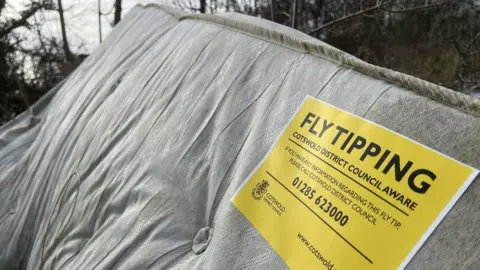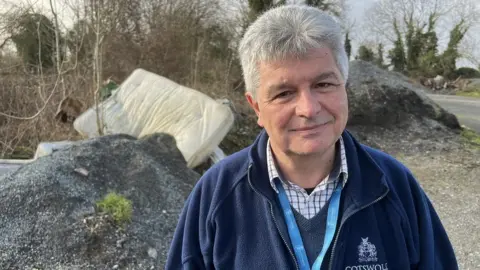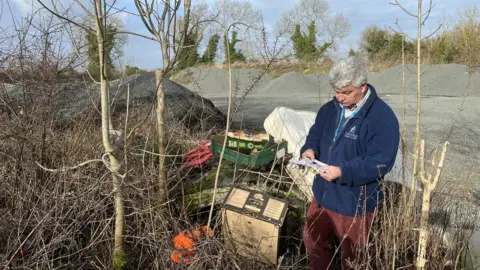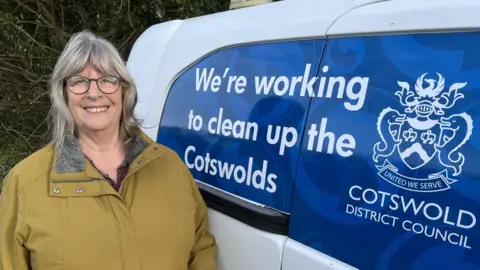Fly-tipping rising in rural parts of the South West
 BBC
BBCThere has been a "marked" increase in fly-tipping in rural parts of the South West.
Government figures show South Somerset had the highest increase in the area in 2022/23, at 67.5%.
The Country Land and Business Association (CLA) said the figures "barely scratch the surface" as they only cover public land.
Cotswold environmental crime officer Kevin Lea said: "I want to get to the fly-tippers. That is my passion."
Other increases in fly-tipping on public land in the region include North Somerset with an increase of 41.7%, West Devon with 22.4%, and South Gloucestershire at 3.6%.
Overall in England, there was a one per cent decrease in 2022/23.

Kevin Lea is the environmental crime officer at Cotswold District Council, where there has been an increase of 8.4% in fly-tipping.
"We receive upwards of five or six reports a day, usually online, of fly-tipping," he said.
Mr Lea looks for cases he could get evidence from, usually ones with bin bags involved.
"I will go to the place and search through the waste - we call in binbagging. Not everyone's dream!
"You're looking for nuggets of gold: correspondence, packaging or cardboard," he added.
Mr Lea explained that often they find a householder who had paid to have waste taken away in good faith, but instead it was fly-tipped.
He has been encouraging people to ask businesses they use to show a waste carrier license, and to ask for receipts.
"Good operators will carry it [the license] in their van. A good business won't be offended."
Mr Lea said he gets in touch with people whose rubbish has been found dumped and it is "not a nice letter". Some people end up being fined.
"I'll be asking for an explanation, I might be asking for an interview."

While there is only a small increase in figures across the South West, the CLA - which represents farmers, landowners and rural businesses - said fly-tipping is not a "victimless crime".
CLA South West Regional Director Ann Maidment said: "Fly-tipping is a crime that's blighting rural communities, with incidents on private land going unrecorded on a mass scale. "Far too often farmers and landowners bear the cost of removing rubbish, and on average they pay £1,000 to remove the waste.
"In some cases they have paid up to £100,000 to clear up other people's mess or risk facing prosecution themselves," she added.
The waste can be hazardous too, with some even including asbestos, which is a risk to people, wildlife and the environment.
The government brought in more measures to tackle fly-tipping in 2022, including increased funding for local authorities.

The CLA wants councils to help clear the problem on private land as well, and stronger action against perpetrators.
Cabinet member for environmental regulation at Cotswold District Council, Juliet Layton, said the authority was trying to get fly-tipping figures down.
"We are trying to educate people. We go into businesses and see what they're doing and ask questions," she said.
"We go out and do stop-and-search on highways with police. We stop and search vans, ask if they have licences to carry waste."

Follow BBC West on Facebook, X and Instagram. Send your story ideas to: [email protected]
